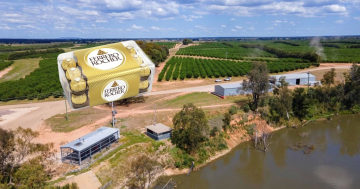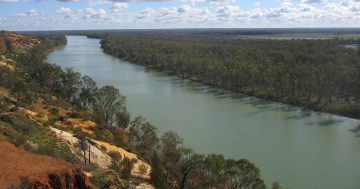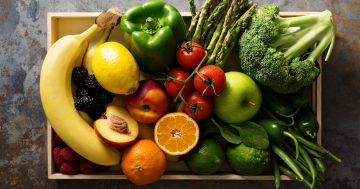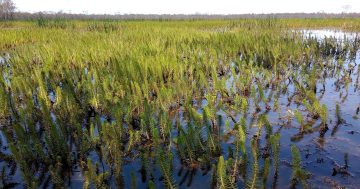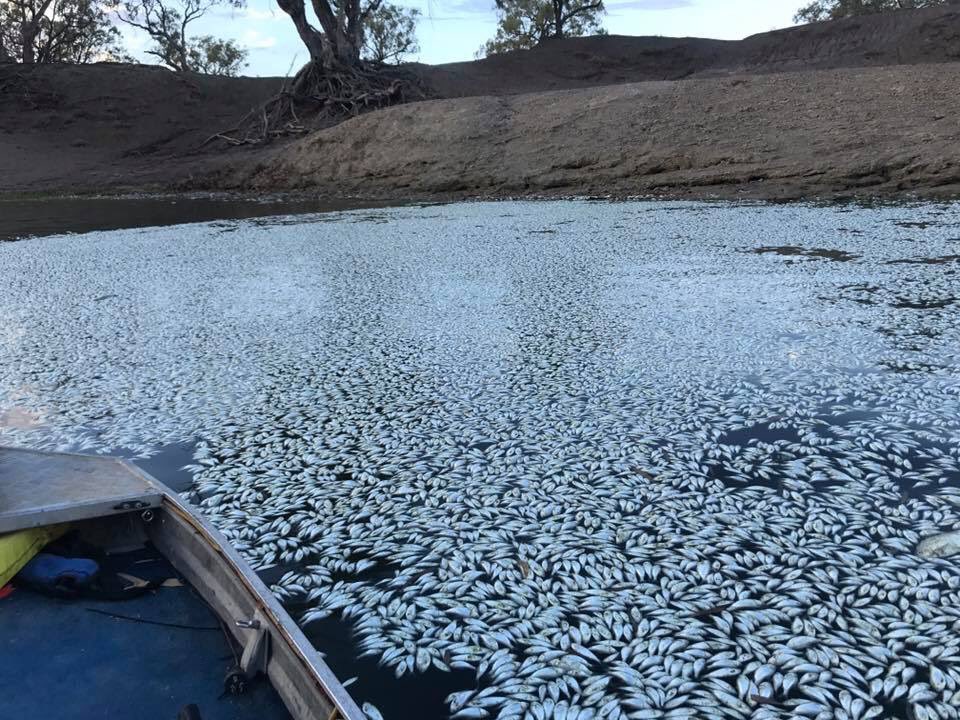
Major fish kills near Menindee occurred in early 2019 and early 2023. Photo: Robert Gregory.
A report into a mass fish kill that occurred in the Lower Darling River earlier this year has drawn widely different interpretations on the cause(s) of the tragedy from environmentalists and an irrigator lobby group.
An estimated 20 to 30 million fish, including native Murray cod, silver perch and golden perch, were found dead near the Far West town of Menindee in March 2023. This prompted the NSW Government to ask its chief scientist and engineer, Professor Hugh Durrant-Whyte, to conduct a review to determine the cause(s) of the incident.
The professor recently released his key findings, stating that “hypoxia – resulting from low dissolved oxygen in the water column – was the most likely proximate cause of fish death”.
“Mass fish deaths are symptomatic of degradation of the broader river ecosystem over many years,” he wrote. “Changes to flow regime and fish passage from water infrastructure and altered water use in the Northern Basin are likely key factors in decreasing water quality and the decline of native species.”
Peak environmental body the Nature Conservation Council (NCC) believes this “altered water use” is due in part to excessive floodplain harvesting – the practice of irrigators diverting rainwater into private dams before it reaches the river.
“NCC’s submission to the chief scientist’s report into the Menindee fish deaths points to serious deficits in water management in NSW, including the recent licensing of large volumes of water through floodplain harvesting,” it wrote in a media statement.
NSW Greens MP Cate Faehrmann also pointed the finger at irrigators.
“In 2020, [corruption watchdog] ICAC found that NSW water department officials had been giving favourable treatment to irrigators for at least a decade and this report suggests that this is still the case,” she said.
“The chief scientist is sending a very strong message that the Government is failing to uphold the water law of this state and the Darling-Baaka River is dying as a result.”
The NSW Irrigators’ Council declined Region’s invitation to directly contest these claims, but instead seized on this finding by the chief scientist: “Water policy and operations focus largely on water volume, not water quality. This failure in policy implementation is the root cause of the decline in the river ecosystem and the consequent fish deaths.”
CEO Claire Miller said this aligned with what the Irrigators’ Council had been saying for some time, that “just buying more water from farmers will not give the environment what it desperately needs now”.
“But instead, we have the Federal Government now preparing to pour billions more dollars into unnecessary buybacks from farmers,” she said.
“It will not even begin to look at complementary measures to fix degradation drivers like carp and cold water pollution until after 2026, after it has drained its Basin Plan budget on buybacks.
“These drivers include invasive species like carp, habitat deterioration, obstructions to fish migration, absence of fish screens on pumps, and contamination from cold water. Many scientists are advocating for a refocus on these drivers if the Basin Plan’s desired ecological advantages are to be realised.”
Lower Darling farmer and water researcher Kate McBride didn’t buy that interpretation.
“They are grasping at straws when they try and cling onto one line in a report,” she said.
“The report brought me to tears. It really heard from the community about what we feel through a fish kill … we have seen a decrease in both the quality and quantity of water and that’s due to changed water practices up north … a fish ladder doesn’t do any good when there’s no water in the river.”
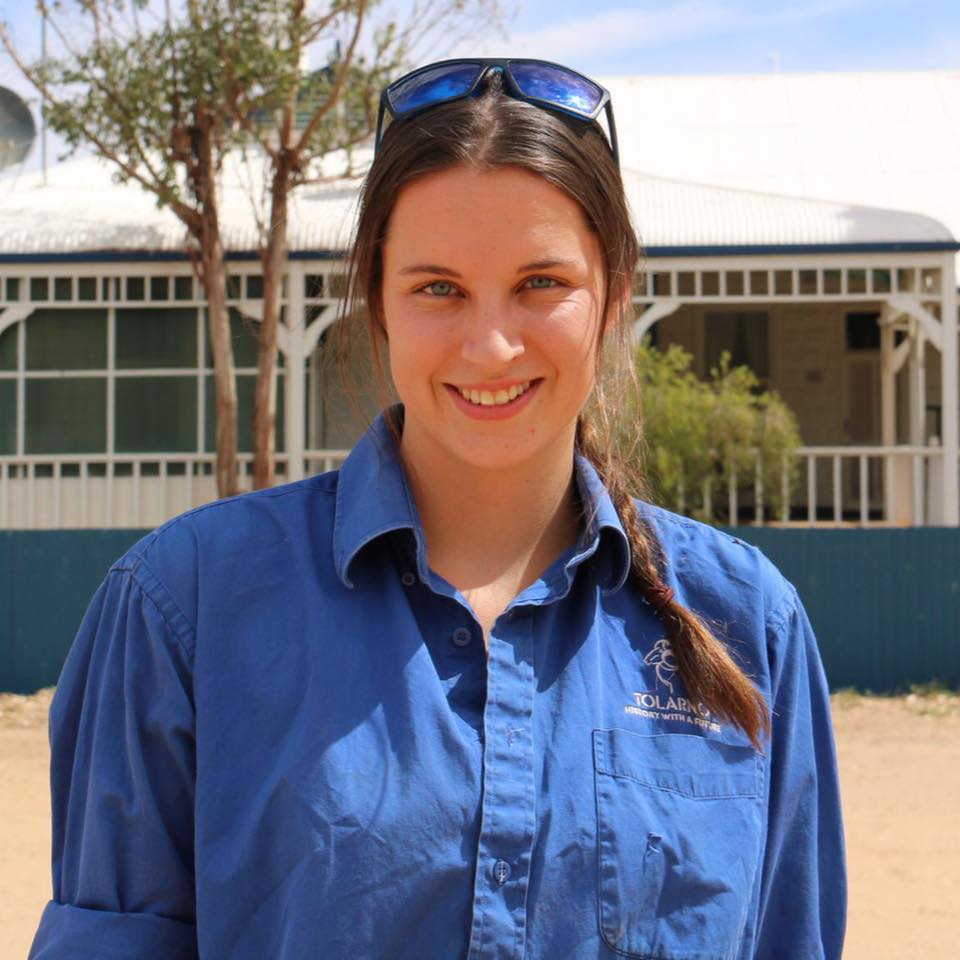
Kate McBride says floodplain harvesting in the Northern Basin is a factor in declining water quality. Photo: Facebook.
NCC water campaigner Mel Gray said she found the Irrigators’ Council response to be “acrobatic”.
“The reason that the water quality is so bad is because of the floodplain harvesting and the over-allocation of water entitlements in the Northern Basin,” she said.
“The carbon builds up on the floodplains and we’re not getting a proper fresh flush to push the toxins along … the river has fundamentally changed and it’s having a devastating impact.”
Both Ms Gray and Ms McBride said it was prudent to wait for the chief scientist’s full report, which is expected to be released within weeks, before reaching conclusions.
“Unlike the irrigators, I’m not going to put words into the chief scientist’s mouth. Let’s wait for the full report to come out,” Ms McBride said.
Original Article published by Oliver Jacques on Region Riverina.






